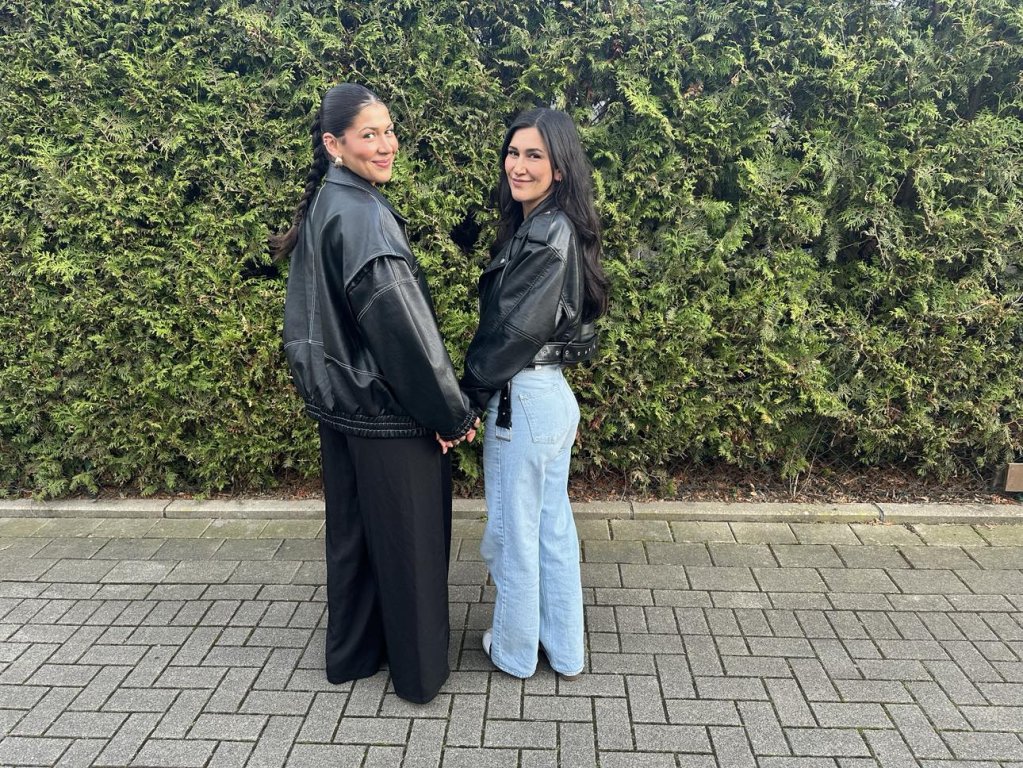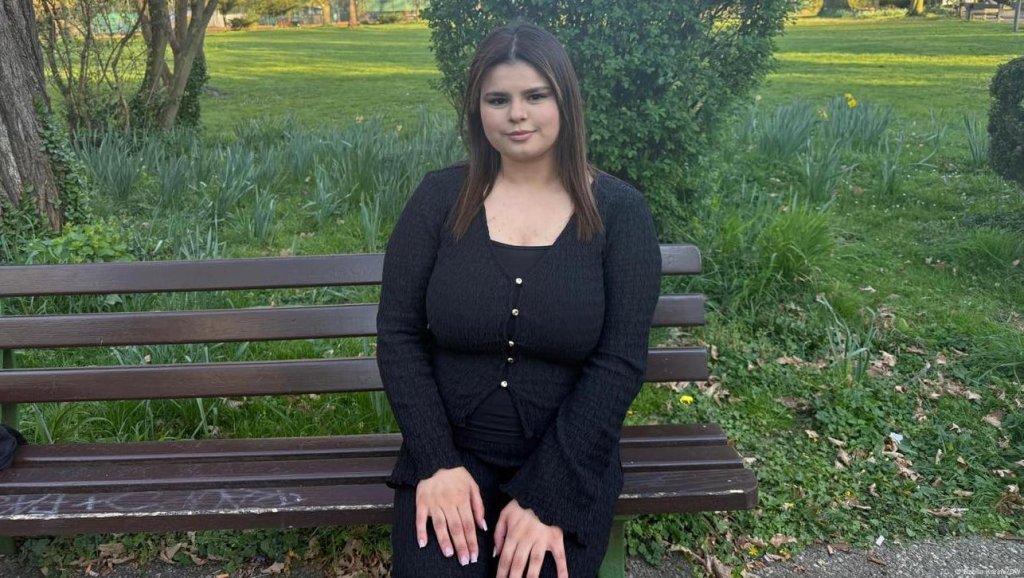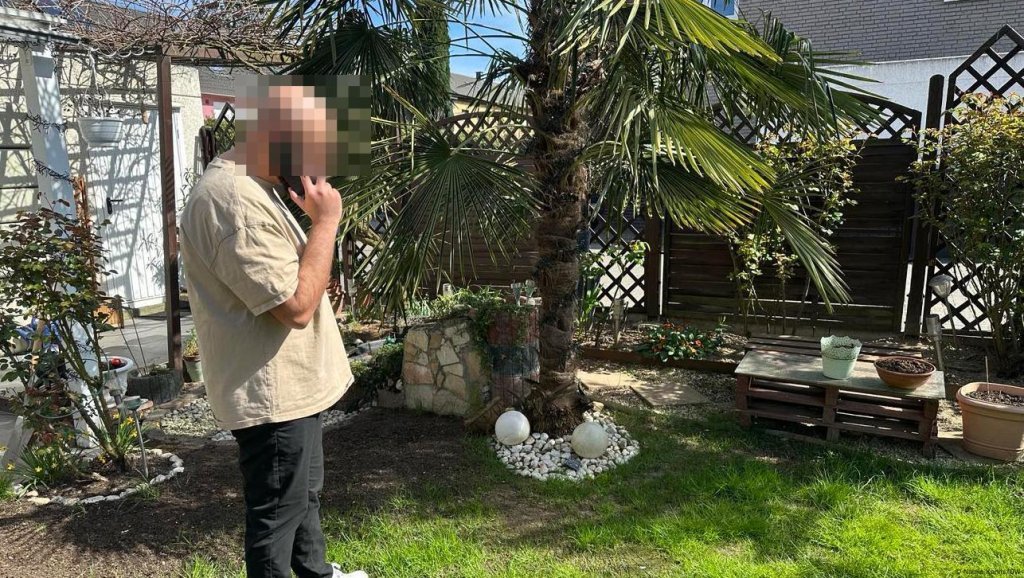InfoMigrants had the opportunity to meet five young professionals from migrant backgrounds living in Germany. Their stories reflect the many challenges and hopes that foreigners caught between two worlds experience. They share their views on identity and integration, and show how they manage to straddle the path between two cultures.
Many young people with a foreign background who were born or grew up in Germany describe the country as their home — and yet they say they experience time and again that they are not perceived as belonging to this society.
"For me, my home is Germany. I've never been anywhere else. That means I only really know this as my home. Of course, I have roots elsewhere, but for me I am German," says Roschin, who was born in Bonn and has Syrian roots.
Yet she knows that others in Germany might see her quite differently: "You realize more and more that people don't see you as German."
"It makes me very sad because I've always loved Germany and Bonn and never wanted to leave. My father has worked here for decades, has paid taxes, and yet he is sometimes not seen as part of this society."
Then there’s Lorene, who describes herself as more "German than Syrian," because she also grew up in Germany and identifies with the German culture. Nevertheless, she says she also continues to face racism — especially since the so-called refugee crisis in 2015.
Like Roshin, she emphasizes the increasing prejudice that many migrants say they experience: "Everyone is lumped together as one and judged accordingly," she explains.
Read AlsoGermany: Merz says incoming government plans to keep new asylum cases under 100,000
Between Afghanistan and Germany
The same feeling of growing alienation is also true for Hena, who has Afghan roots: "I don't feel like a German, but I don't feel like I’m 100 percent Afghan either," she tell InfoMigrants.
She highlights, however, that the thing she appreciates most about Germany is the personal freedom she enjoys in the country: "I'm free to decide what career I want to pursue, who I want to talk to and who I vote for."
Hena adds that she feels like she is constantly forced to switch between her two cultures: At home, she speaks Dari and celebrates Afghan festivals with her family, while in public she lives much more like a typical German girl.

"It's a kind of dual identity. I love both cultures, but sometimes it feels like I have to choose," she explains, feeling torn between the freedoms she has come to appreciate and her Afghan side, which represents the culture and values she inherited from her parents.
Abdullah, another Afghan who was born and grew up in Bonn, says he feels somewhat more rooted in his Afghan background:
"As I have lived in Bonn all my life, I would call Bonn my home," he explains, adding however that he feels a strong connection to Afghanistan:
"Thank God I grew up speaking Dari and was taught cultural and traditional customs [from Afghanistan] from an early age."
And finally, there’s Hedia, who was born in Germany and whose parents come from Tunisia. Since she has been living in Germany for a long time, she has a German passport, but says that she often does not feel completely like a German:
"I can never really define it. I don't always feel 100 percent German in Germany. I'm simply far too Tunisian by blood for that."
Read AlsoGermany: New coalition government to tighten migration and citizenship policy
Casual racism
All of these young professionals seem to have one thing in common: They experience contempt, exclusion and alienation, sometimes reaching all the way to being subject to racist tropes and attacks.
Roschin, for example, says that while she hardly ever noticed any differences between foreigners and native Germans when she was growing up as a child, she is increasingly aware today of the fact that she is not always perceived as part of German society:
"As a child, you don't pay attention to origin or differences. But the older I get, the more I feel like I am somehow perceived differently by others."
Lorene agrees that she, too, has been experiencing more and more racism since the onset of the so-called refugee crisis ten years ago.
She says that she frequently has to listen to people complaining that "migrants don't do enough for Germany," but stresses that as a refugee, she was forced to give everything up at home "in order to have a good life here."
"My parents have sacrificed a lot so that we can have a better life here, but we are still often perceived as mere 'foreigners.'"
'Give this to your interpreter'
Hedia is no stranger to the same kind of discrimination: "Sometimes you are treated differently just because of your name or your appearance," she tells InfoMigrants.
Hedia's situation is somewhat unique: her mother was born in Germany and her father came to Germany later, but has lived here for many years; her parents have always encouraged her to appreciate her Tunisian roots while leading a full life in Germany.

But her foreign origins are not always accepted in German society, she highlights.
Hedia recalls one particularly painful experience she had with her grandmother many years ago:
"We were in the town hall and my grandmother asked an official something, while I had stepped out for just a minute. The employee there simply threw a piece of paper at her and told her to 'Give this to your interpreter.' When I got back, I told him that this was my grandmother who had been living in Germany for 50 years. At that moment, I felt really foreign."
Read AlsoGermany: Jet carrying at-risk Afghans stirs debate
'You speak fluent German?'
Hena agrees that she has also experienced similar patronizing acts of belittlement and alienation on a frequent basis:
"Many older Germans are surprised when they hear that I speak fluent German, just because my appearance obviously doesn't match what they might expect."
Hena still recalls an experience when she was at elementary school: "A teacher asked me if I was being beaten at home — because my parents are foreigners. She said it was culturally normal for us."
For Abdullah meanwhile, the main thing that stands out is how the public image of Afghans and their country has changed in recent years:
"The reputation of fellow Afghans has suffered greatly. The situation has continued to deteriorate in recent years. As a person with a migration background, I definitely have the feeling that there have been several situations when I was not treated as equally as a German citizen by the authorities."
He reports that he also has been subject to racist comments in the past, especially in his childhood:
"I used to hear jokes about 'bombers' when I was small. Today I'm more likely to be called a rapist or a stabber."
Read AlsoGermany: New coalition government to tighten migration and citizenship policy
Disappointed by populist developments
These young people are all notably worried about recent political developments in Germany — particularly the rise of right-wing populist Alternative for Germany (AfD) party, which came in second place during the February federal elections.
Roschin says that while she didn't take elections too seriously in the past, this time she made sure she went to the polls — fearing a potential AfD rule.
"It is a privilege to be able to vote here. It would be sad if I didn’t make use of this right, especially because so many people have had to fight for it."
Roschin adds that the political developments of recent years have changed her perspective about Germany altogether:
"It makes me very sad because I always loved Germany and Bonn, and never wanted to leave. But I've now reached the point where I think that … when I've finished my studies, I don't want to continue working here, and I don't want to pay any more taxes to this government."
Read AlsoSkilled migration to Germany: Navigating the challenges
'Not a place for our children'
Hena is also worried about the political mood in Germany becoming more hostile towards foreigners:
"It makes me sad to see how the right-wing side of Germany is becoming more and more powerful, and how few successes the left has left to celebrate."
The recent election result, especially the success of the AfD, have disappointed her deeply: "Unfortunately, that result was to be expected, as right-wing voices had been very active on social media in particular."
Hena doubts whether she sees her long-term future in Germany under these circumstances: "No matter how educated or hard-working I am, I feel like I belong less and less in this place," she says.
"If my children have to sit with right-wing extremist classmates at school or are confronted with topics that are not appropriate for children, I don't see that as an option."
Abdullah is also unsure about his future prospects in Germany: "Germany has lost its luster for me."

He, too, fears for the future of his children one day: "I don't want them to experience what I've been through in recent years."
Read AlsoGermany could withdraw citizenship due to 'antisemitism'
Young immigrant voices on deportations
But the young people don’t agree on every last issue. Their opinions on deportations of foreigners in particular seem to vary.
"If you don't want to live in this country and don't want to integrate into society, you don't have to stay. But people who have worked here for years should not be forced to leave," says Lorene.
Hena meanwhile feels that the issue of deportations is a lot closer to home; she is concerned about her relatives who do not yet have a secure residence status in Germany.
She says she is not fundamentally against the principle of deportations, but does feel opposed to uncontrolled immigration: "Capacities must be created, not only for accommodation, but also for psychological support."
Criminal migrants should consistently be deported, she adds.
Abdullah meanwhile says he is more worried about growing right-wing populism in the country and political developments linked to that:
"There is no electable party that I could support with a clear conscience," he says, adding that since "Germany's migration policy has definitely failed in recent years" there is a greater risk of fundamentalist ideas taking root in the midst of society.
While he supports the deportation of serious offenders with a migration background, he firmly rejects blanket deportations of migrants who have not been granted asylum — especially to war zones.
"But I definitely support the deportation of serious offenders, regardless of where they come from," he emphasizes.
Meanwhile for Roschin, the idea of deportations to Syria is still problematic. She supports measures taken against people who break the law, but is unsure where such people should be sent to.
In her view, the current situation in Syria is still too dangerous and uncertain; the security situation there is worse today than it was during the civil war, she says and emphasizes that religious conflicts and violence remain a major problem.
Read AlsoGermany interior minister defends record on migration
No place like home
Despite all these challenges, there are also successes, which each one of them proudly celebrates.
Hena runs her own business as a dermatological beautician: "My customers come to me because they trust my work," she explains.
Hedia works as a coach in marketing, which she finds is a rewarding career. Nevertheless, she remains unsure whether she wants to spend her future in Germany.

After studying Business Administration, Abdullah now works as a Regional Operations Manager in the local start-up scene, where he says having "a migration background is often regarded as a positive thing."
"The start-up culture in Germany is very multicultural. I never have the feeling that I am at a disadvantage."
Lorene is studying business law at university and is aiming to build a career in this field. She dreams of setting up her own company in the future, and would also like to contribute to the reconstruction of Syria.
Roschin meanwhile is also focusing on finishing her law degree, without knowing where the future might take her: "You're somewhere in between — you’re neither really at home in Syria, where my parents are from, nor in Germany," she explains.
"I would feel like a stranger in Syria, but I don’t really feel at home here in Germany either. Perhaps there is no place for me that really feels like home."
Adapted from German by Sertan Sanderson
